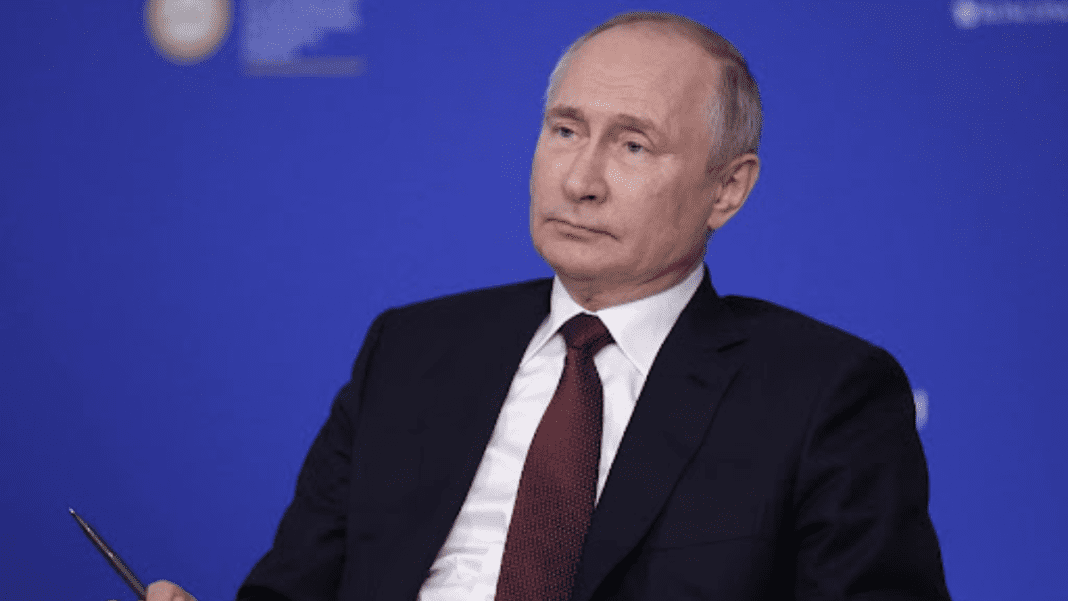Russia has taken its war of words to the next level by publicly naming Italy’s top officials in a new list accusing them of anti-Russian behavior.
The move has stirred diplomatic waves across Europe and put Italy in Moscow’s crosshairs. The list, released on the official website of the Russian Foreign Ministry, points fingers at President Sergio Mattarella, Foreign Minister Antonio Tajani, and Defence Minister Guido Crosetto.
Italy Branded in Moscow’s “Hall of Shame”
In a striking move, Russia has listed President Sergio Mattarella, Foreign Minister Antonio Tajani, and Defence Minister Guido Crosetto in what it calls a “hall of shame.” This online section, titled “Examples of Russophobic Manifestations,” claims to highlight hostile behavior from foreign officials.
The digital dossier singles out key voices from the West and Ukraine, blaming them for fueling hatred toward Russia. Italy is given a dedicated paragraph in both the 2024 and 2025 editions, reflecting Moscow’s deepening frustration with the country’s leadership.
🚀 Russia’s R-77M missile makes combat debut—Ukraine’s skies turn deadly
Russia has accused these Italian leaders of making harsh remarks about the ongoing war in Ukraine. One key example was a speech given by Sergio Mattarella at the University of Marseille, where he compared Russia’s actions to those of Nazi Germany. The Kremlin reacted strongly, with its foreign ministry calling the comments offensive and out of line.
Ministers Targeted Over Their Statements
The inclusion of Antonio Tajani and Guido Crosetto is based on interviews they gave to Il Messaggero, an Italian newspaper. Though the interviews reportedly didn’t directly reference Russia, the Kremlin still considered them part of what it sees as a pattern of anti-Russian rhetoric.
This shows a broader trend: Russia is now counting even indirect criticism as “Russophobia.” The list includes multiple Western and Ukrainian officials, but Italy stands out with a separate mention under both years.
This naming strategy appears to be more than symbolic. By officially labeling these high-ranking Italian figures, Russia is broadcasting disapproval not just internationally, but also to its own citizens. The goal seems to be to create an image of being under constant attack from the West, with Italy now playing a central role.
🚢 Silent signals? China’s mysterious naval vessel spotted near Japan amid Russian war drills
Kremlin Tightens Grip on Critics
The reaction from Russia’s Foreign Ministry has not stopped at the list. Ministry spokesperson Maria Zakharova used extremely strong language, including a slang term meaning “to kill.” This term was widely shared on Telegram, where it attracted over 340,000 views, along with mocking stickers and heated discussions.
She also called for an “International Day Against Russophobia,” reinforcing the idea that Russia sees itself as unfairly targeted by global leaders.
Behind this aggressive tone is growing pressure within Russia. Many believe President Vladimir Putin expected more international support, especially from figures like Donald Trump. However, the European Union and NATO have remained united, and now, Italy has become a key target of Moscow’s response.
The inclusion of Sergio Mattarella, Antonio Tajani, and Guido Crosetto is a strong message from the Kremlin. While it may appear as political theatre, such lists can serve as a starting point for future diplomatic actions, symbolic retaliation, or digital interference.
By singling out Italy’s top leaders, Russia is escalating its rhetoric—and raising tension between Moscow and Europe even further.

